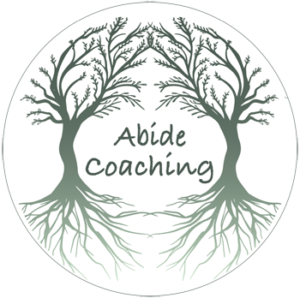We often hear that people with ADHD are bored; however; we also hear that people with are overwhelmed. So which one is it?
Well, it is both. When an ADHD brain is under aroused, then they are bored or unable to initiate a task. Overwhelm sets in when the ADHD brain is over-aroused. People are unable to prioritize, focus, and use working memory effectively. Unhealthy overwhelm is anxiety.

College students with ADHD are more likely to report having anxiety as well. While women are twice as likely to have anxiety in the general population, there is no bias based on gender when there is ADHD as well. Both men and women can feel all the typical symptoms; insomnia, feelings of dread, unfocused, avoidance, irritability, but sometimes for males, it comes out as anger.
What to do when you are far away from your family?
- If you take medication for anxiety, stay on it. Make a plan with your doctor before leaving for college or find a new doctor right away. There is usually one on campus.
- Self-care is critical for both anxiety and ADHD. Basic self-care means you need to eat, move, and sleep. Eating – if you are eating in the cafeteria, then visit the salad bar. If you are in an apartment, don’t forget to buy fruits and veggies. I know you are probably living on a budget. Here is how I see it. You have two choices you can either pay at the grocery store for healthy food, or you can pay at the doctor’s office when you get sick. Save money somewhere else. Move – join a sports team, a club sport, take a class, go for a run or walk, find a buddy to hit the gym, or always take the stairs. Sleep – There is no hack for sleeping. You must sleep for your brain to work its best. I know this sounds nuts because we heard stories about the lack of sleep college students get. Honestly, those are circumstances those students create for themselves due to procrastination.
- Don’t procrastinate – too much! I know telling someone with ADHD not to procrastinate is like getting a cat to fetch a ball. It can be done, set up routines and boundaries that are absolutes for you.
- Routines: Make your ADHD work for you; people with ADHD usually do better when a situation becomes urgent. They tend to be able to hyperfocus, making it easier to do tasks they won’t often enjoy doing. Don’t just wait for anxiety to set-in to identify that something is now urgent.
- Plan it! For example, if you have a test (not a final) to study for starting a week out may not be urgent enough to make it engaging for you so schedule it in your planner for a couple of days ahead. If it is a paper that the class has a month to write, you may only need a couple of weeks. You can’t be willy-nilly about it. No; I think I might start on blah, blah, blah. Schedule in your planner when (day and times) you will research, outline, write the draft, edit, and submit your final. Give yourself a day or two buffer in case of tech issues or illness.
- Boundaries: If procrastination is more distraction or avoidance, then set up some boundaries. For example, if getting ready in the morning is an issue, identify what is pulling you off track like your phone or video games. Set a new boundary, no screens in the morning. Tell your roommate and ask them to call you out on it if you break your new boundary. If studying on a timely basis is the issue, you could join a study group, go to office hours, stay out of your dorm/apartment until the required work is finished or find a study buddy for each class.
- Plan breaks – make time to enjoy yourself. I am not talking about study breaks, but you should plan those too. I mean, do something you enjoy. These activities are also self-care, but I want to emphasize them here. If you enjoy art, make time to go to a museum or create artwork that is not part of a class. If you find nature calming, then plan a hike or a bike ride. Put this time in the calendar as well and protect it. I think it should be a weekly activity so you can always look forward to it. What you do can change based on interests or seasons, but the time should still be there. It may need to change when it is semester to semester.
- Coaching – I am not just saying this to drum up business. Both research and anecdotal evidence is growing to show that ADHD coaching/Life coaching can be a useful strategy to help students (and others) to plan, prioritize, and follow-through. Coaching can help shift anxiety, develop self-esteem and self-determination, and much more.

